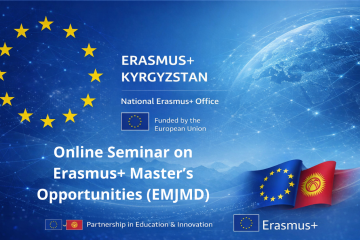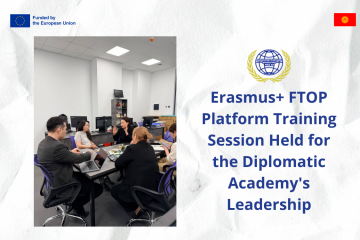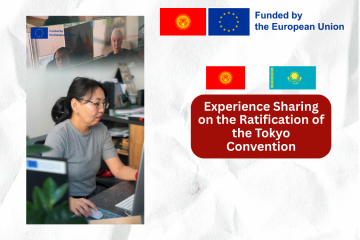The international conference “Strengthening University Collaboration Between Europe and Central Asia”, held on April 23–24, 2025, brought together university leaders, Central Asia National Erasmus+ Offices (NEOs), policymakers, and higher education experts from across the two regions. Over two dynamic days, participants exchanged ideas, forged new connections, and laid the foundation for long-term academic cooperation rooted in sustainability, innovation, and shared goals.
Opening the event, Deputy Minister of Education and Science of the Kyrgyz Republic, and Acting EU Ambassador to Kyrgyzstan, emphasized the importance of collaboration in addressing the evolving challenges of global education. Their remarks set a welcoming tone and underscored the significance of regional and international partnerships.
A keynote by Deputy Director of the National Centre of Higher Education Development of Kazakhstan, highlighted the pressing need for aligned and innovative academic frameworks to better connect institutions across Europe and Central Asia.
Throughout the conference, renowned experts shared actionable insights to support modernization and internationalization in higher education. Presenters provided a strategic perspective on global trends such as digitalization, student-centered learning, and the international recognition of academic credits. Presenter from the University of Graz presented practical approaches to developing joint degrees and flexible learning formats, including micro-credentials, virtual exchanges, and blended mobility.
Kyrgyzstan’s International Ala-Too University shared hands-on experience with Erasmus+ mobility, offering guidance on partnership development, logistics, and maximizing program impact for students and staff alike.
Interactive workshops and collaborative sessions gave participants space to discuss joint program development, institutional strategies, and the integration of the Bologna Process. The discussions focused not only on structural reforms but also on aligning educational systems with global standards while considering the specific context of Central Asia.
One of the conference’s key highlights was a targeted contact seminar, where Central Asian and European institutions explored concrete opportunities for collaboration. The atmosphere was energetic and forward-looking, as new academic partnerships began to take shape.
Another important dimension of the conference was the focus on sustainability. Presenter of TIIAME National Research University (Uzbekistan) presented a compelling case study on how universities in Uzbekistan are localizing the Sustainable Development Goals (SDGs), aiming for global relevance through local action.
The event concluded with the drafting of a joint resolution—a collective statement of intent to strengthen academic cooperation between Europe and Central Asia. This document outlines shared principles and concrete commitments, serving as a foundation for future collaborative projects, policy alignment, and joint initiatives.
The strong sense of openness, collaboration, and shared vision throughout the conference demonstrated the power of partnerships in building a more inclusive, sustainable, and globally connected future for higher education.


